Abstract
We attempted to replicate an intervention program by Bornstein and Quevillon (1976), which had shown that the disruptive classroom behavior of Head Start children could be dramatically reduced through self-instructional training. Although the subject population and procedures were quite similar across studies, our self-instructional training did not produce socially significant, durable increases in either appropriate classroom behavior or changes in teacher ratings of the children's behavior. These results suggest that additional variables may have been responsible for Bornstein and Quevillon's success.
Full text
PDF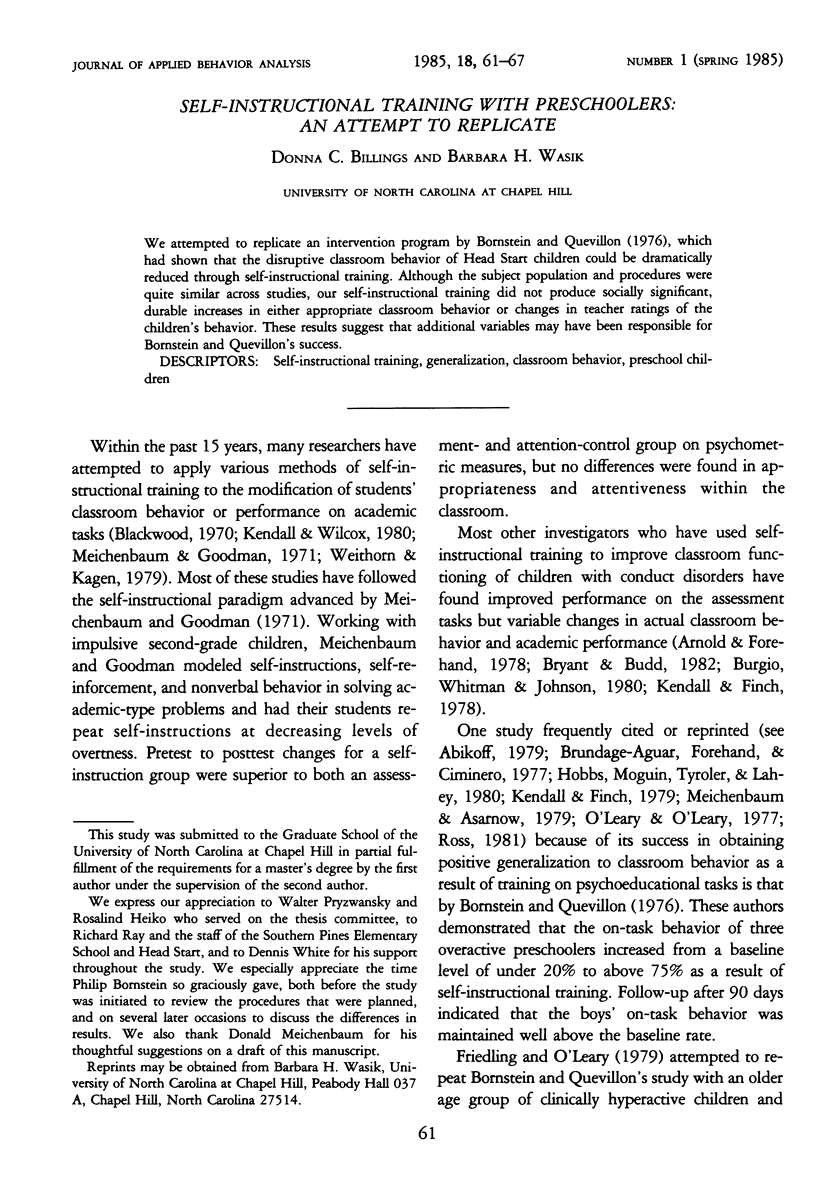
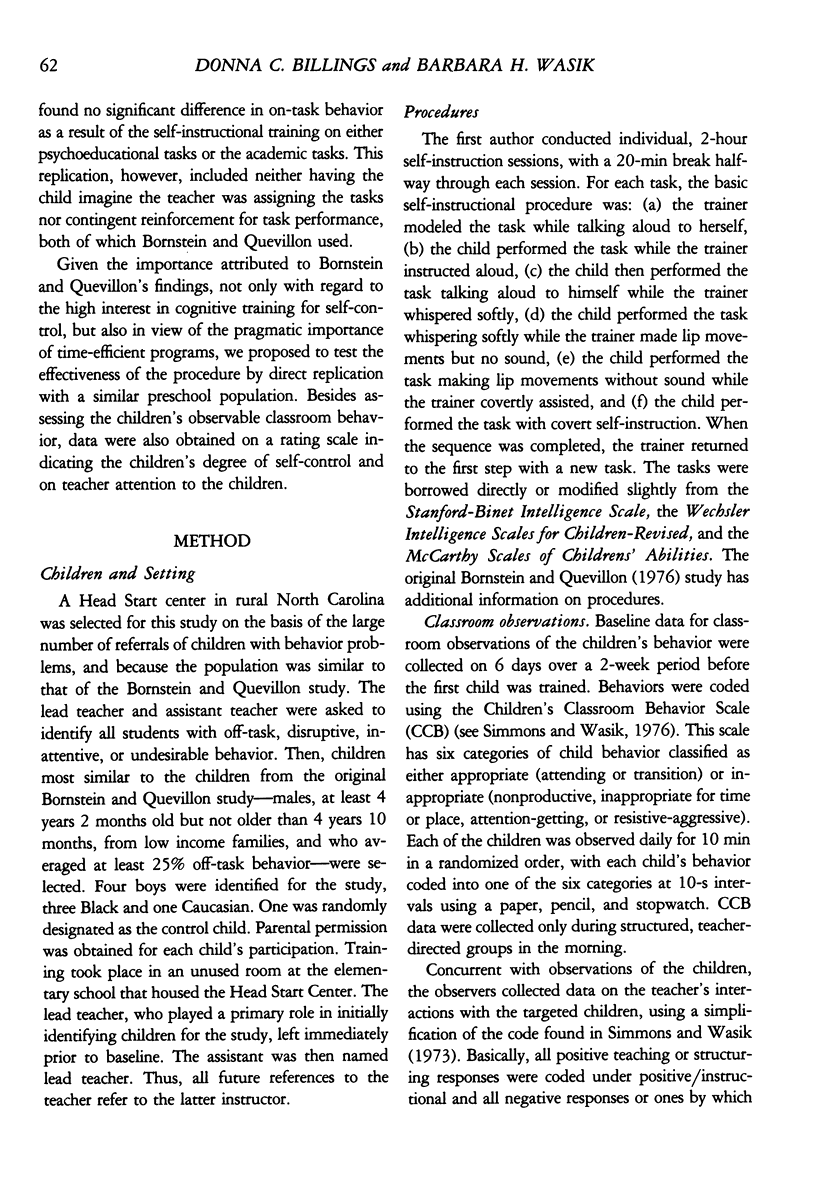
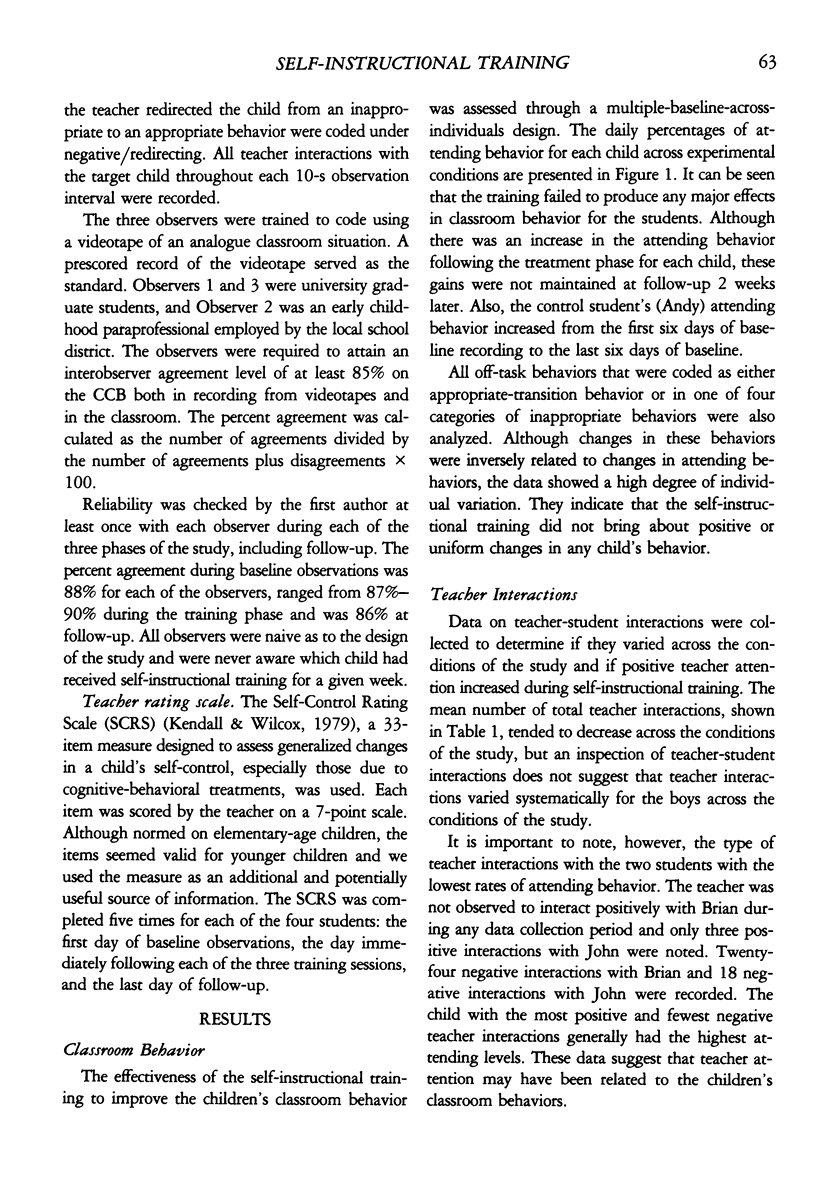
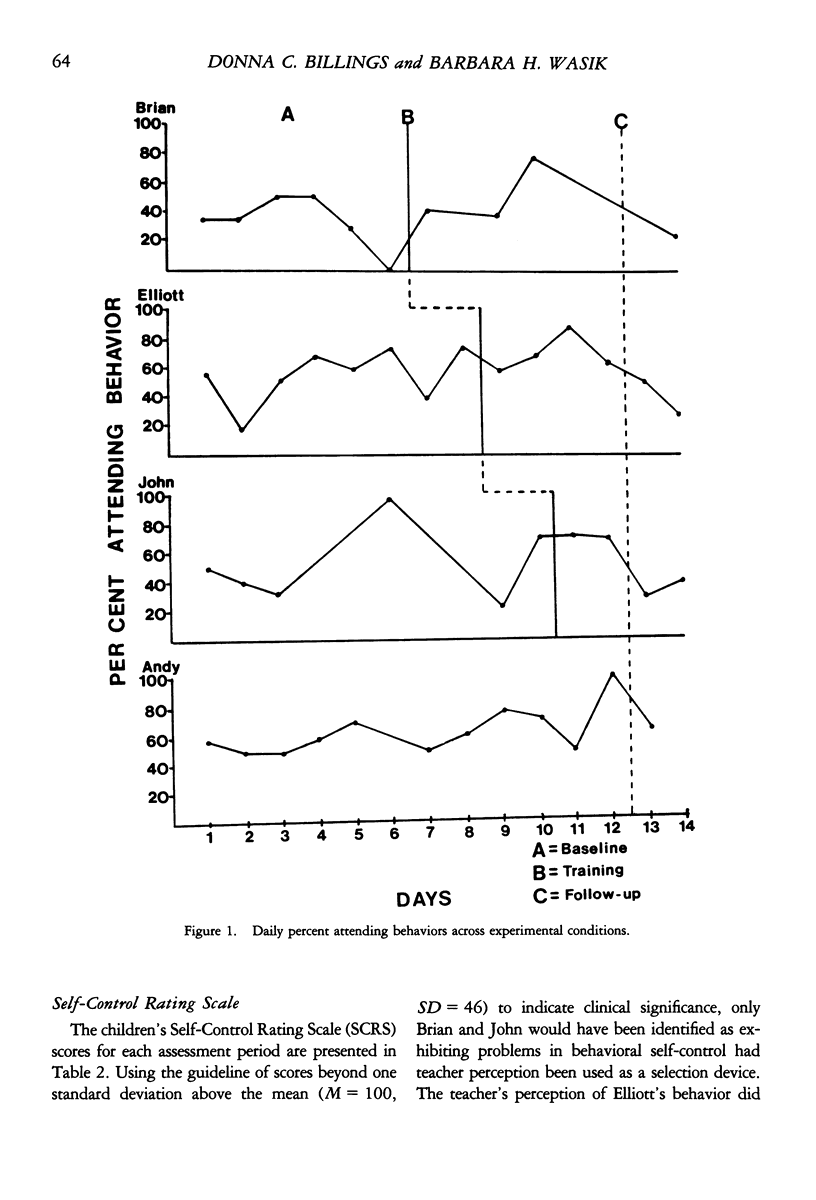
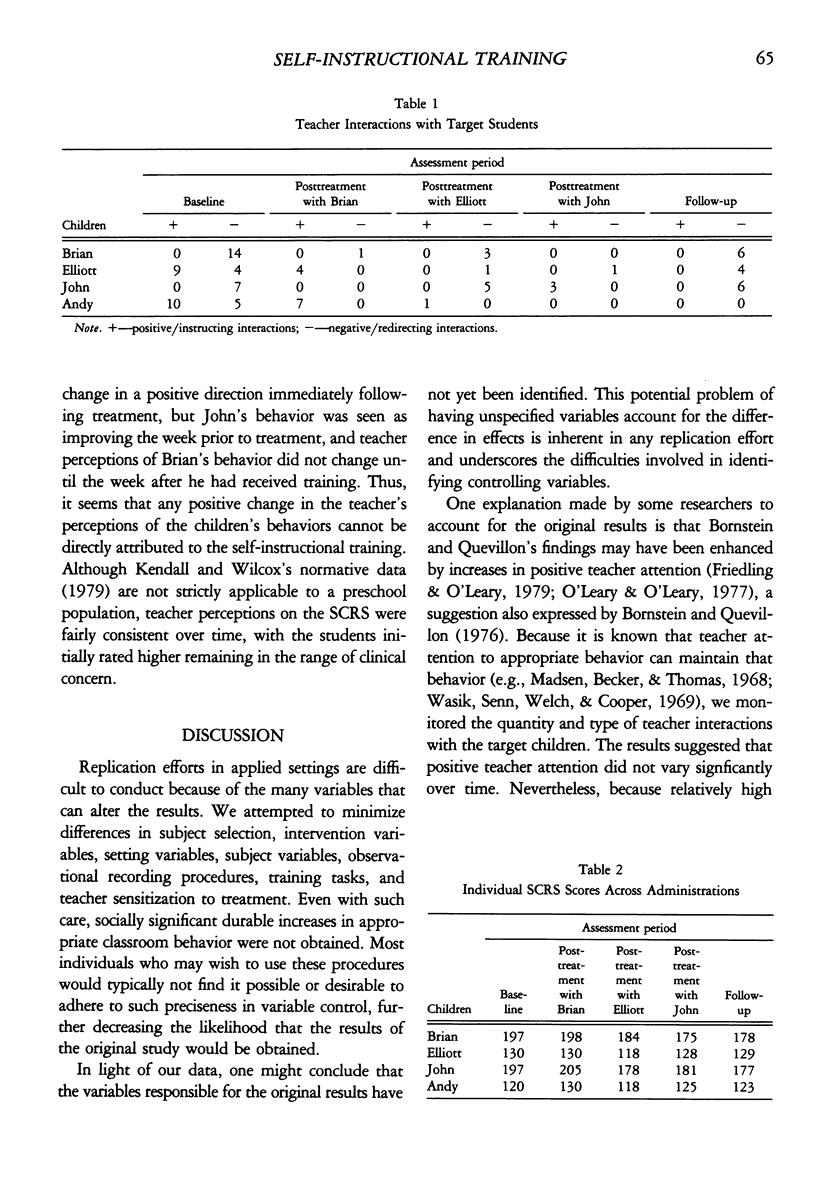
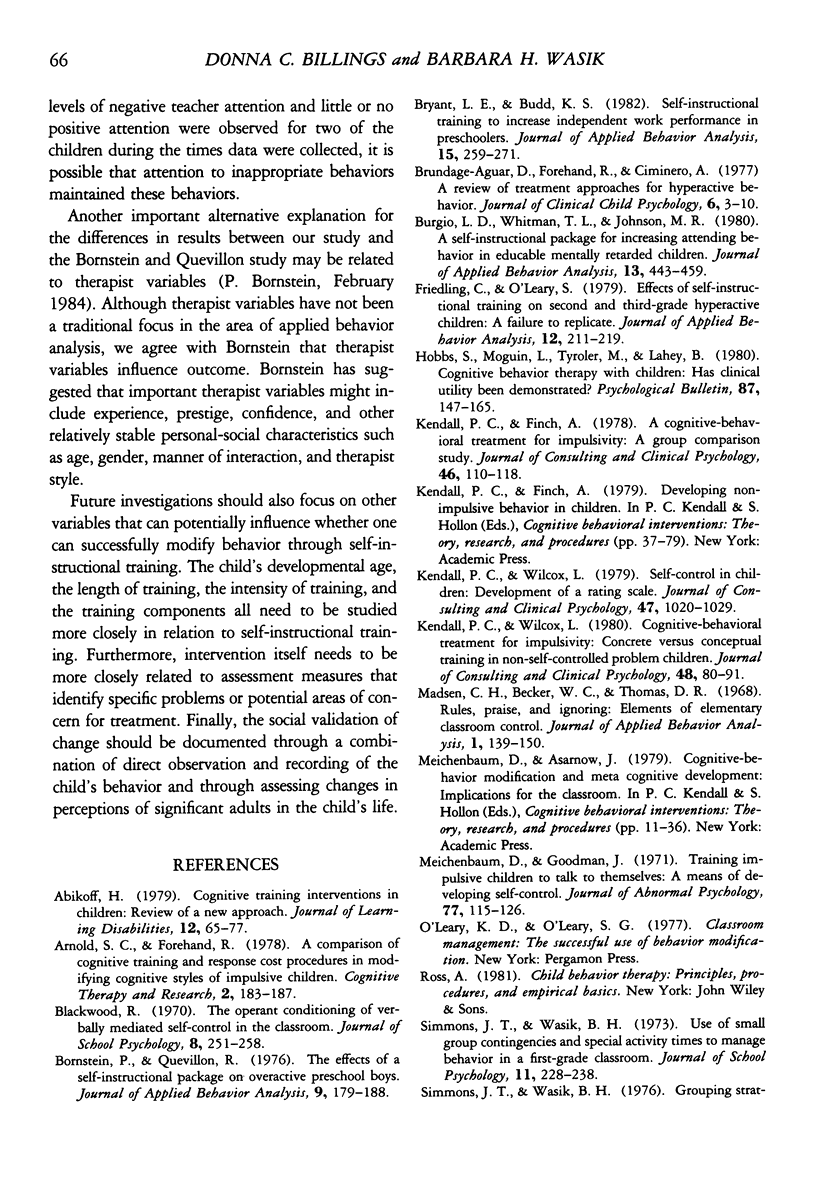
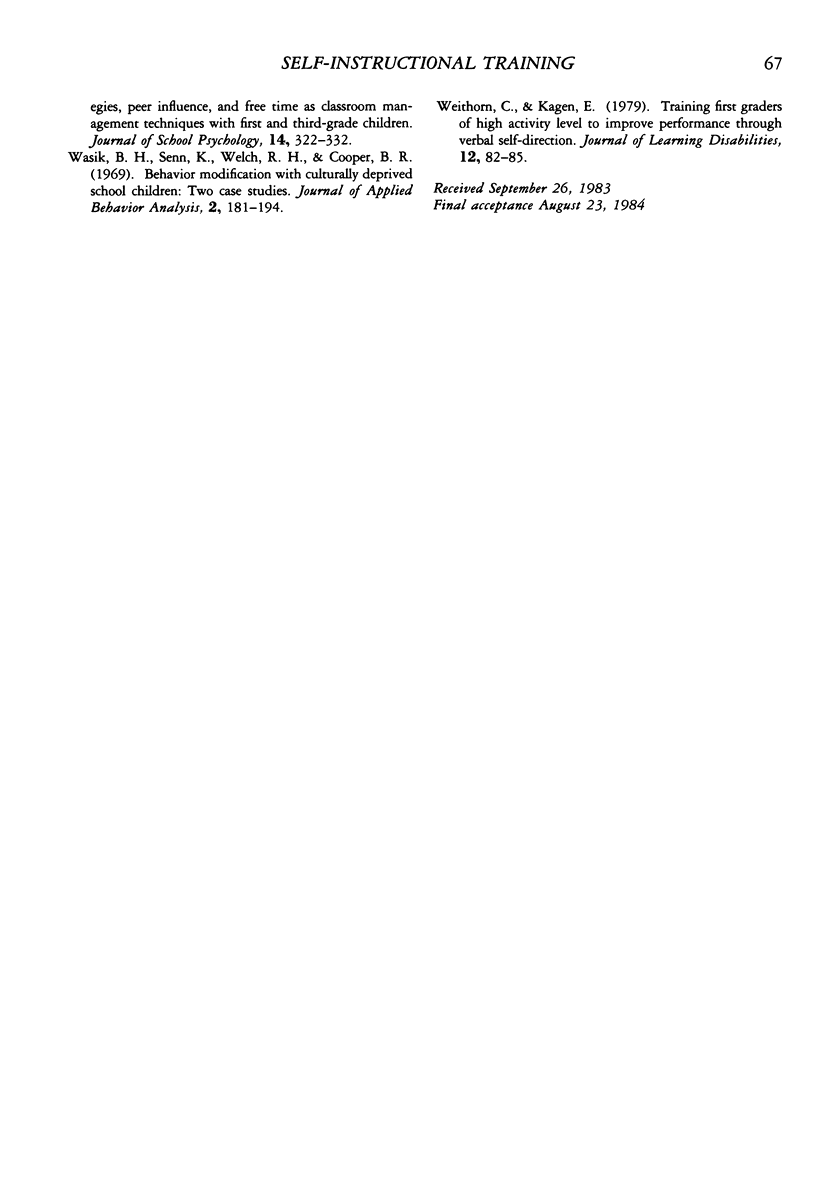
Selected References
These references are in PubMed. This may not be the complete list of references from this article.
- Bornstein P. H., Quevillon R. P. The effects of a self-instructional package on overactive preschool boys. J Appl Behav Anal. 1976 Summer;9(2):179–188. doi: 10.1901/jaba.1976.9-179. [DOI] [PMC free article] [PubMed] [Google Scholar]
- Bryant L. E., Budd K. S. Self-instructional training to increase independent work performance in preschoolers. J Appl Behav Anal. 1982 Summer;15(2):259–271. doi: 10.1901/jaba.1982.15-259. [DOI] [PMC free article] [PubMed] [Google Scholar]
- Burgio L. D., Whitman T. L., Johnson M. R. A self-instructional package for increasing attending behavior in educable mentally retarded children. J Appl Behav Anal. 1980 Fall;13(3):443–459. doi: 10.1901/jaba.1980.13-443. [DOI] [PMC free article] [PubMed] [Google Scholar]
- Friedling C., O'Leary S. G. Effects of self-instructional training on second- and third-grade hyperactive children: a failure to replicate. J Appl Behav Anal. 1979 Summer;12(2):211–219. doi: 10.1901/jaba.1979.12-211. [DOI] [PMC free article] [PubMed] [Google Scholar]
- Hobbs S. A., Moguin L. E., Tyroler M., Lahey B. B. Cognitive behavior therapy with children: has clinical utility been demonstrated? Psychol Bull. 1980 Jan;87(1):147–165. [PubMed] [Google Scholar]
- Kendall P. C., Finch A. J., Jr A cognitive-behavioral treatment for impulsivity: a group comparison study. J Consult Clin Psychol. 1978 Feb;46(1):110–118. doi: 10.1037//0022-006x.46.1.110. [DOI] [PubMed] [Google Scholar]
- Kendall P. C., Wilcox L. E. Cognitive-behavioral treatment for impulsivity: concrete versus conceptual training in non-self-controlled problem children. J Consult Clin Psychol. 1980 Feb;48(1):80–91. doi: 10.1037//0022-006x.48.1.80. [DOI] [PubMed] [Google Scholar]
- Kendall P. C., Wilcox L. E. Self-control in children: development of a rating scale. J Consult Clin Psychol. 1979 Dec;47(6):1020–1029. doi: 10.1037//0022-006x.47.6.1020. [DOI] [PubMed] [Google Scholar]
- Madsen C. H., Becker W. C., Thomas D. R. Rules, praise, and ignoring: elements of elementary classroom control. J Appl Behav Anal. 1968 Summer;1(2):139–150. doi: 10.1901/jaba.1968.1-139. [DOI] [PMC free article] [PubMed] [Google Scholar]
- Meichenbaum D. H., Goodman J. Training impulsive children to talk to themselves: a means of developing self-control. J Abnorm Psychol. 1971 Apr;77(2):115–126. doi: 10.1037/h0030773. [DOI] [PubMed] [Google Scholar]
- Miller W. H. A comparison of the Wide Range Achievement Test and the Peabody Individual Achievement Test for educationally handicapped children. J Learn Disabil. 1979 Jan;12(1):65–68. doi: 10.1177/002221947901200112. [DOI] [PubMed] [Google Scholar]
- Wasik B. H., Senn K., Welch R. H., Cooper B. R. Behavior modification with culturally deprived school children: two case studies. J Appl Behav Anal. 1969 Fall;2(3):181–194. doi: 10.1901/jaba.1969.2-181. [DOI] [PMC free article] [PubMed] [Google Scholar]
- Weithorn C. J., Kagen E. Training first graders of high-activity level to improve performance through verbal self-direction. J Learn Disabil. 1979 Feb;12(2):82–88. doi: 10.1177/002221947901200203. [DOI] [PubMed] [Google Scholar]



